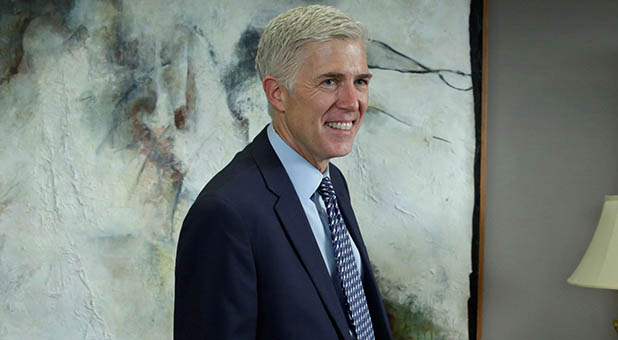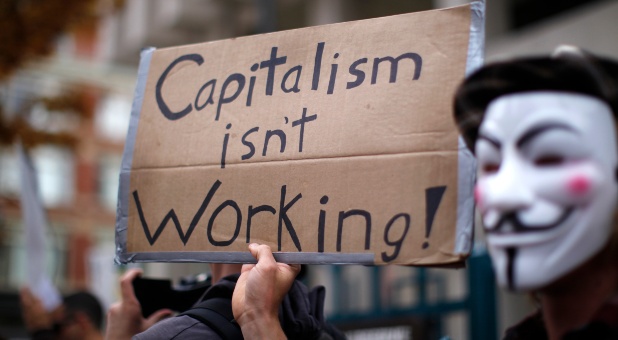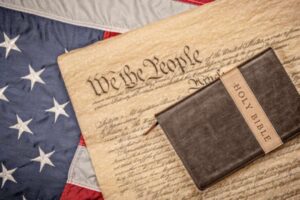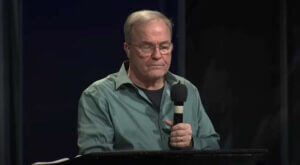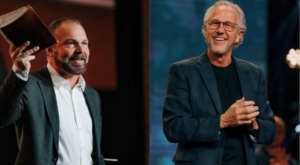Confirmation hearings for 11th Circuit Court of Appeals Judge Neil Gorsuch are scheduled to begin Monday, but already one pro-life group is trying to apply pressure to senators to ensure they vote to confirm his nomination.
Americans United for Life’s legal team delivered a letter from AUL’s Acting President Clarke Forsythe in support of the nomination to each senator’s office. In the letter, Forsythe writes:
I write to you today as Acting President and Senior Counsel for Americans United for Life (AUL), whose legal team has been involved in every abortion-related case before the U.S. Supreme Court since Roe v. Wade, including our successful defense of the Hyde Amendment in Harris v. McRae (1980). Because of our long history of constitutional legal expertise, we have been asked to testify on Supreme Court nominations before the Senate Judiciary Committee on multiple occasions. In a similar fashion, we now express our support for the confirmation of Judge Neil M. Gorsuch to the Supreme Court.
Throughout his decade of service on the U.S. Court of Appeals for the Tenth Circuit, Judge Gorsuch has demonstrated a commitment to constitutional originalism, the separation of governmental powers, and principles of judicial restraint.
Judge Gorsuch’s commitment to constitutional originalism is made clear in his many writings, and was well-established during the 2006 Senate confirmation hearing that led to his unanimous confirmation to the Tenth Circuit At that time, Judge Gorsuch explained his views to Senate Judiciary Committee, stating, “[j]udges must allow the elected branches of government to flourish and citizens, through their elected representatives, to make laws appropriate to the facts and circumstances of the day. Judges must avoid the temptation to usurp the roles of the legislative and executive branches and must appreciate the advantages these democratic institutions have in crafting and adapting social policy as well as their special authority derived from the consent and mandate of the people, to do so.”
In his 2016 Case Western memorial lecture summarizing the legacy of Justice Scalia, he re-emphasized his commitment to textualism: “an assiduous focus on text, structure and history is essential to the proper exercise of the judicial function.” Likewise, in 2016, in his concurring opinion in Cordova v. City of Albuquerque,Judge Gorsuch explained to both his fellow judges and potential litigants, that “ours is the job of interpreting the Constitution. And that document isn’t some inkblot on which litigants may project their hopes and dreams for a new and perfected tort law, but a carefully drafted text judges are charged with applying according to its original public meaning.”
A strong respect for the separation of governmental powers is also seen in Judge Gorsuch’s writings and comments over the years. When President Donald Trump introduced him to the American people on Jan. 31, Judge Gorsuch made his judicial philosophy clear: “It is the role of judges to apply, not alter, the work of the people’s representatives. A judge who likes every outcome he reaches is very likely a bad judge, stretching for results he prefers rather than those the law demands.” He also emphasized the importance of the judicial oath and its commitment “to administer justice equally to rich and poor alike.”
In his Case Western lecture, Judge Gorsuch also stressed the importance of the separation of powers:
…the great project of Justice Scalia’s career was to remind us of the differences between judges and legislators. To remind us that legislators may appeal to their own moral convictions and to claims about social utility to reshape the law as they think it should be in the future. But that judges should do none of these things in a democratic society. That judges should instead strive (if humanly and so imperfectly) to apply the law as it is, focusing backward, not forward, and looking to text, structure, and history to decide what a reasonable reader at the time of the events in question would have understood the law to be— not to decide cases based on their own moral convictions or the policy consequences they believe might serve society best.
Finally, Judge Gorsuch’s record demonstrates a deep respect for judicial restraint. His judicial opinions and legal writings are not only marked by scholarship and clear writing, but also by a scrupulous weighing of the legal precedent and factual evidence for both sides. He consistently exhibits respect for litigants, as well as for his fellow judges, and their daily efforts “to hear courteously, answer wisely, consider soberly and decide impartially.”
Judge Gorsuch’s respect for judicial restraint is also demonstrated in his concurring opinion in Direct Mktg. Assn. v. Brohl, where he explained:
In our legal order, past decisions often control the outcome of present disputes. Some criticize this feature of our law, suggesting that respect for judicial precedent invests dead judges with too much authority over living citizens. They contend, too, that it invites current judges to avoid thinking for themselves and to succumb instead in “judicial somnambulism.” [cit. omit.] But in our legal order judges distinguish themselves from politicians by the oath they take to apply the law as it is, not to reshape the law as they wish it to be. And in taking the judicial oath, judges do not necessarily profess a conviction that every precedent is rightly decided, but they must and do profess a conviction that a justice system that failed to attach power to precedent, one that surrendered similarly situated persons to wildly different fates at the hands of unconstrained judges, would hardly be of the name.
Although Judge Gorsuch has been criticized by People for the American Way (PFAW) and the Leadership Conference for Civil & Human Rights (LCCHR) for his opinions, written or joined, in three cases, the criticism is no more than a resulted-oriented complaint that Judge Gorsuch did not reach their favored policy outcomes. However, these opinions represent careful, principled decisions rooted in the Constitution, federal statute, or precedent.
Specifically, in Hobby Lobby Stores v. Sebelius, 723 F.3d 1114 (10th Cir. 2013), the Tenth Circuit applied the federal Religious Freedom Restoration Act (RFRA) to the regulations issued by the Department of Health and Human Services (HHS) which compel employers to provide insurance coverage for various birth control methods to which certain employers objected on religious grounds (“HHS Mandate”). After concluding that the plaintiffs could bring their case and showed a likelihood of succeeding on the merits, the majority of the 10th Circuit en banc reversed the district court’s denial of a preliminary injunction and remanded to the district court. Judge Gorsuch concurred in the majority’s decision with a separate opinion (joined by two judges) that clarified why the plaintiff corporate owners’ objections to complicity in the provision of abortifacients to employees in the face of “crippling penalties” was entitled to respect under the law as “sincerely held religious beliefs.” He emphasized that the federal RFRA “doesn’t just apply to protect popular religious beliefs: it does perhaps its most important work in protecting unpopular religious beliefs, vindicating this nation’s long-held aspiration to serve as a refuge of religious tolerance.” 723 F.3d at 1152-53. The Supreme Court affirmed the judgment, and some if not all of the Tenth Circuit’s reasoning in Burwell v. Hobby Lobby Stores, Inc., 134 S. Ct. 2751 (2014).
Later, a panel of the Tenth Circuit in a 2-1 decision in Little Sisters of the Poor v. Burwell, 794 F.3d 1151 (10th Cir. 2015), held that the plaintiffs challenging the HHS Mandate were not entitled to a preliminary injunction because they could not show a likelihood of establishing a substantial burden on the exercise of their First Amendment rights. In Little Sisters of the Poor v. Burwell, 799 F.3d 1315 (10th Cir. 2015), the full court refused to rehear the case en banc. Judge Hartz dissented with an opinion (joined by Judge Gorsuch) which disputed the panel’s opinion that the plaintiffs could not show a substantial burden (“When a law demands that a person do something the person considers sinful, and the penalty for refusal is a large financial penalty, then the law imposes a substantial burden on that person’s free exercise of religion.”). 799 F.3d at 1317.
Finally, in Planned Parenthood Ass’n of Utah v. Herbert, 839 F.3d 1301 (10th Cir. 2016), the Tenth Circuit considered a procedural question related to en banc review of a panel’s decision in Planned Parenthood Ass’n of Utah v. Herbert, 828 F.3d 1245 (10th Cir. 2016), a case challenging the acts of the governor of Utah to discontinue public funding of Planned Parenthood. The LCCHR has charged that Judge Gorsuch “dissented from the majority’s decision to keep in place a preliminary injunction that stopped the state of Utah from blocking access to health care and education for thousands of Planned Parenthood’s patients.” However, the case centered on the governor’s reasons for suspending public funding. The district court’s denial of Planned Parenthood’s request for a preliminary injunction was reversed by the Tenth Circuit panel. 828 F.3d 1245. The full court denied rehearing en banc. Judge Gorsuch dissented for two reasons from the denial of the rehearing en banc in a thorough, detailed and carefully written opinion. He concluded that the panel departed from prior circuit precedent applicable to the standard of review and the burden of proof. 839 F.3d at 1307. His decision did not reach the merits of the case, but turned on purely procedural issues.
Finally, we note Judge Gorsuch’s book, The Future of Assisted Suicide and Euthanasia (Princeton University Press 2006), where he wrote:
Perhaps the most profound indicium of the innate value of human life, however, lies in our respect for the idea of human equality. The Fourteenth Amendment to the U.S. Constitution guarantees equal protection of the laws to all persons… This profound social and political commitment to human equality is grounded on, and an expression of, the belief that all persons innately have dignity and are worthy of respect without regard to their perceived value based on some instrumental scale of usefulness or merit. We treat people as worthy of equal respect because of their status as human beings and without regard to their looks, gender, race, creed or any other incidental trait—because in the words of the Declaration of Independence, we hold it as ‘self-evident’ that ‘all men [and women] are created equal’ and enjoy ‘certain unalienable rights’ and ‘that among these are life.
His book is critical of “the arbitrariness of instrumentalist accounts of human value” and reflects profound respect for essential human equality and dignity that undergirds the principle of equal justice under law.
Judge Gorsuch’s distinguished record is confirmed by the American Bar Association’s highest “well-qualified” rating, announced on March 9. In addition, Neal Katyal, Acting Solicitor General during the Obama Administration, has referred to Judge Gorsuch as “an extraordinary judge and man … who brings a sense of fairness and decency to the job, and a temperament that suits the nation’s highest court.”
Judge Gorsuch has a clear record of commitment to constitutional originalism, the separation of governmental powers, and principles of judicial restraint. For these reasons, we urge the Senate to confirm the President’s nomination of Judge Neil M. Gorsuch to the Supreme Court of the United States.
Since 1972, AUL has been involved in more than 100 federal and state cases across the country and internationally, including every significant abortion-related case before the Supreme Court including Roe v. Wade. AUL has filed more amicus curiae (or “friend of the court”) briefs than any other pro-life organization.
UL Staff attorney Deanna Wallace will be providing daily analysis of the issues discussed during the hearings. Click here to learn more about some of judicial principles that impact life in the law and that may be discussed during next week’s hearings at AUL’s SCOTUS101. {eoa}
See an error in this article?
To contact us or to submit an article


